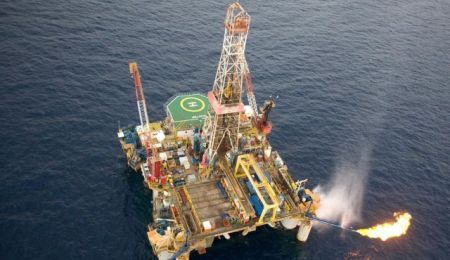
Without Crimea, Ukraine looks set to lose an important piece of its economic and energy future: valuable undersea oil and gas fields that lie just offshore the Crimean peninsula. Exploiting those Black Sea fields could help reduce Ukraine’s dependence on Russian gas imports.
And Big Oil had been interested: Before the overthrow of former President Viktor Yanukovych, Ukraine was on the verge of signing a deal with a group, including Exxon Mobil (XOM) and Royal Dutch Shell (RDS.B), that was prepared to spend $735 million to drill two wells off Crimea’s southwest coast. “Exxon and Shell are now in a legal limbo,” Chris Weafer of Moscow investment group Macro Advisory told Bloomberg News. If Crimea votes in a March 16 referendum to secede from Ukraine, the government in Kiev “may soon no longer have jurisdiction over the region.”
The so-called Skifska area that Exxon and Shell want to develop is part of an undersea field that extends westward along the Black Sea coastline to Romania. Within the area now under Ukrainian jurisdiction, however, “the most interesting exploration areas are all effectively [under] Crimean waters,” says Julian Lee, an analyst at the Center for Global Energy Studies in London. Losing control of those areas “would be a significant loss for Ukraine.”
Ukraine has estimated that oil and gas production from Skifska, along with another Crimean offshore area known as Foros, could reach the energy equivalent of up to 7 million tons of oil annually. That’s less than 10 percent of the oil and gas Norway extracts annually from beneath the North Sea. Still, it totals about 20 percent of Ukraine’s current annual gas imports, which come mainly from Russia and have been a longstanding source of friction between the two countries.
Rather than seceding, voters in the March 16 referendum are being offered the option of remaining in Ukraine while increasing Crimea’s autonomy. Even that outcome would probably deter investment in the Black Sea fields. “Nobody’s going to put people at risk, nobody’s going to invest in drilling or any other kind of exploration if they don’t have certainty that their contracts will remain valid,” Lee says.
The oil companies, for now, are lying low. Executives at Exxon Mobil say they remain interested in exploring the area and will not take sides in the dispute.
Story: Ukraine's East Is Poor, Fed Up, and Desperate for Change
Italian energy group Eni (ENI:IM), which last year reached an agreement to explore off Crimea’s eastern coastline, says it doesn’t know how the crisis might affect its plans. “We wait to see if the situation gets normal, and then I would certainly get back in touch with the new authority there,” Eni Chief Executive Officer Paolo Scaroni told CNN in an interview last week. “We have been living through changing of governments in many countries in our life.”
Source: Bloomberg
We use cookies to improve your experience. By continuing to use our site, you accept our Cookies, Privacy Policy,Terms and Conditions. Close X